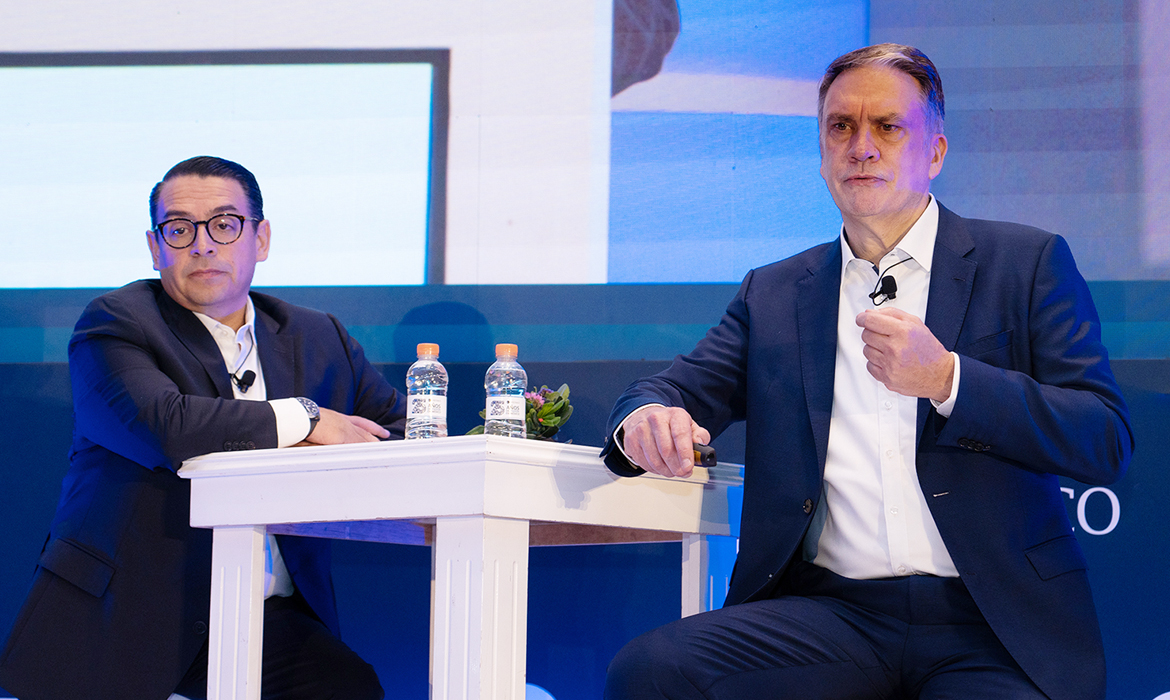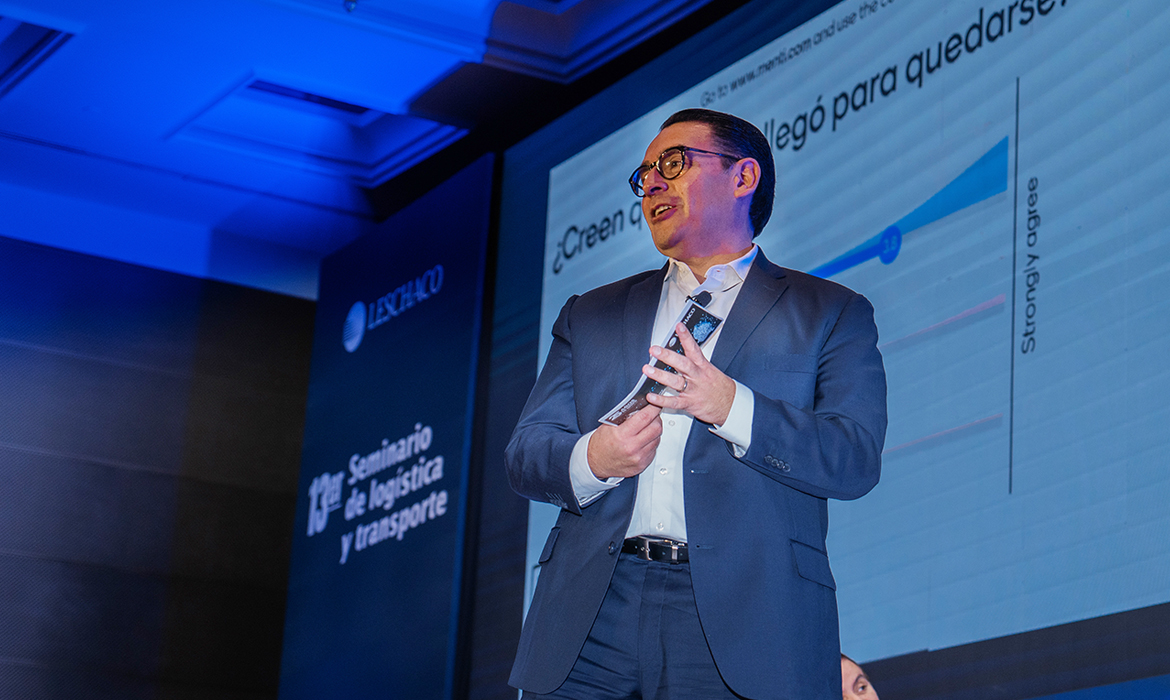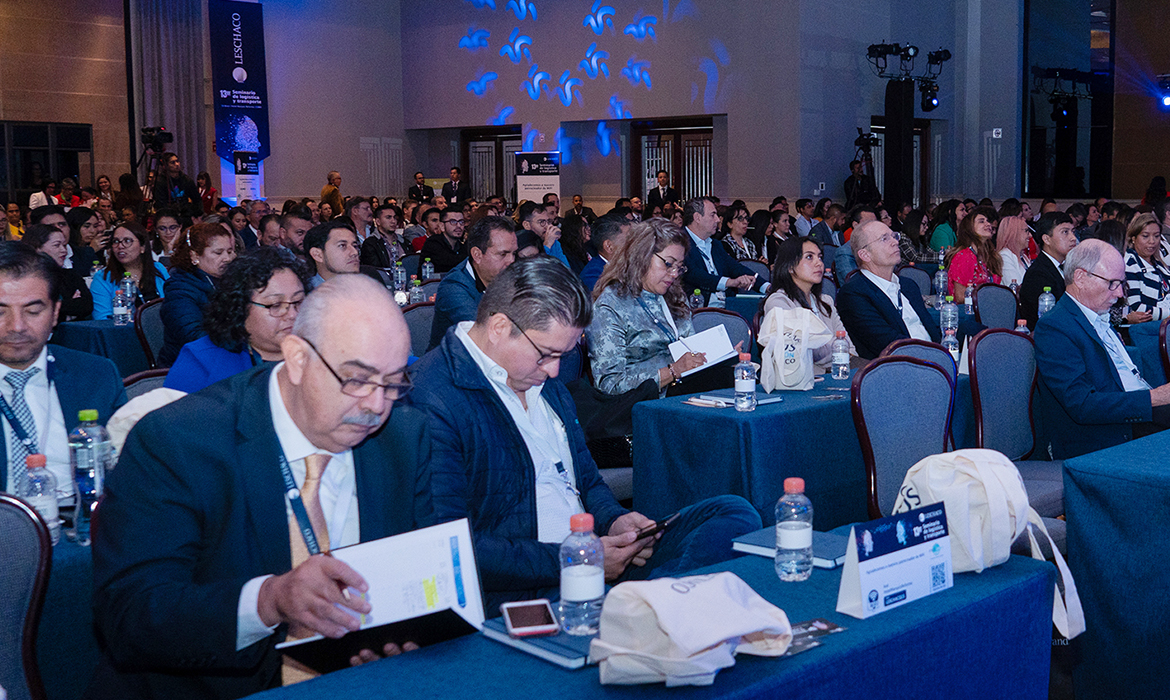
The pace of the economy is being driven by the dynamics of domestic consumption, while nearshoring (relocation) is prompting the establishment of new production plants and demanding greater logistics services.
In this context, the 14th Leschaco Seminar will address, in various panels, the nearshoring phenomenon, sustainable logistics, and the challenges of land and sea transportation. On this occasion, the guest country will be Colombia.
“The 14th Leschaco Seminar addresses a series of critical challenges in the context of a rapidly transforming global and regional market, especially with the rise of nearshoring,” commented Francisco Gálvez, General Director of Leschaco Mexicana.

In the realm of nearshoring, the seminar will explore how organizations can optimize their supply chains and logistics to handle the increase in operations and demands for more agile and adaptive services.
To address the topic of sustainable logistics, the importance of integrating sustainable practices into logistics will be discussed, highlighting how innovation and technology, as well as artificial intelligence, can increase efficiency and minimize environmental impact. Success stories will be examined, and new ideas will be debated to advance towards greener and more efficient logistics.
Maritime transportation faces complex and dynamic challenges such as the blockage in the Red Sea, the Baltimore accident, and geographical challenges like the drought in the Panama Canal. These events underscore the vulnerability of maritime transportation to external factors. The seminar will provide a forum to discuss these issues and explore strategic solutions to improve the resilience and efficiency of maritime transportation.
The land transportation market is growing rapidly, posing significant challenges related to infrastructure capacity, technology, and regulation. The seminar will address emerging trends and how companies can adapt to a competitive and ever-evolving environment.
In 2024, Leschaco faces significant challenges in Mexico, primarily focused on logistics infrastructure, capacity, and market development across different continents. Nationally, insecurity in cargo movement along major highways poses a challenge in implementing security schemes.

In this field, Leschaco is adapting by exploring logistical alternatives, which includes increasing the use of railways, as they present a viable option to alleviate the burden on roads while also being a sustainable mode of transportation. Leschaco continues to invest in improving its own operational and internal logistical capabilities to handle operations more effectively through the proper utilization of Mexico’s infrastructure, noted Gálvez.
Leschaco has been actively expanding its operations, not only in key ports but also inland in Mexico. The expansion into Central America underscores the company’s strategic focus on creating an integrated logistics network that can effectively respond to the changing dynamics of the Latin American market.
At the corporate level, Leschaco is not only diversifying its range of services and products but also its opportunities in vertical markets. Its strong foundation in maritime solutions is facilitating the expansion of logistical capabilities for the aerospace and land sectors.
Additionally, Leschaco has implemented advanced digital tools such as the Lighthouse platform to optimize the order management process and operational efficiency. This platform is being deployed in Mexico and includes automatable functions that help customers improve their logistical execution and, consequently, save costs.
Expansion into the pharmaceutical and medical equipment industry is also crucial for Leschaco, with the diversification of services, bringing along a comprehensive offering from its experience in the chemical industry.

Comment and follow us on X: @GrupoT21














